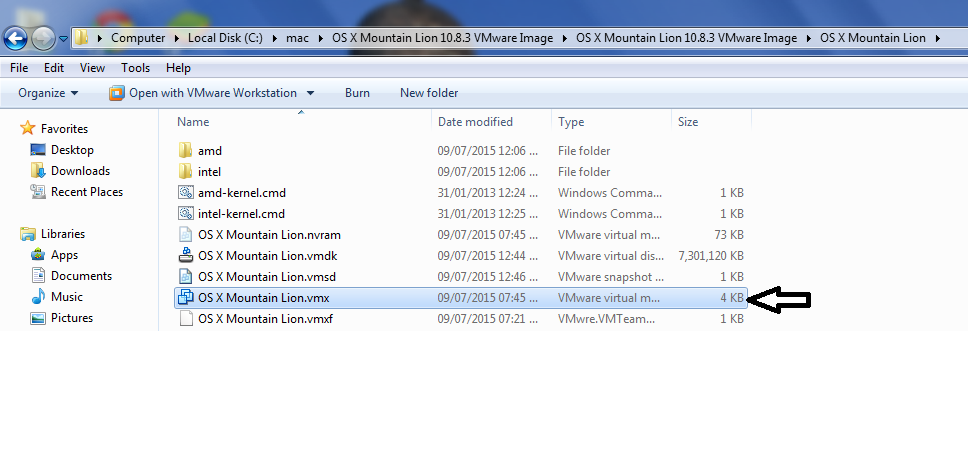
- #MODIFY OSX KERNEL FOR AMD PRO#
- #MODIFY OSX KERNEL FOR AMD CODE#
- #MODIFY OSX KERNEL FOR AMD WINDOWS#
Now there are other solutions that say at first boot into Recovery Single User Mode - CMD + R + S. The solution is to change your energy settings and make sure the screen saver animation options are always active. NOTE: One known issue to this solution (and maybe others) is that when the screen goes to sleep/black it no longer wakes up, therefore needing a forced reboot.
#MODIFY OSX KERNEL FOR AMD PRO#
Now there are several solutions on the web but this is the only one that worked for me running macOS High Sierra (10.13.6+) and what was worst for me is that the MacBook Pro was stuck in looping reboot. + pvt->ops = &family_types.ops įamily_types.If you are suffering from the infamous blue lines on the black screen on startup or random reboots then you maybe suffering from an AMD graphics card hardware issue with your later 2011 Macbook Pro laptop. early_channel_count = f17_early_channel_count,
#MODIFY OSX KERNEL FOR AMD CODE#
The code to handle Ryzen 5000 APUs (family 0x19, model 0x50), then initializeĭata structures that contain the proper device IDs (0x166a and 0x1670): - drivers/edac/amd64_edac.h.orig 20:53:17.777353032 -0800 So in drivers/edac/amd64_edac.c, function per_family_init() I first change Then 6 which, on my machine, have device ID 0x166a and 0x1670. Memory controller, and reserve_mc_sibling_devs() is looking for functions 0 It is my understanding the above 8 device functions represent the northbridge / The code looks for 0x1650 and does not find it. On EPYC 7232P, the code looks for 0x1490 and finds it, but on Ryzen G I convert the edac_dbg() to a printk() statement, which prints: So, what is Linux doing? I locate the module’s source, drivers/edac/amd64_edac.c,ĭown the rabbit hole, I discover reserve_mc_sibling_devs() fails here: pvt -> F0 = pci_get_related_function ( pvt -> F3 -> vendor, pci_id1, pvt -> F3 ) if ( ! pvt -> F0 ) The wmic command prints 6, meaning Multi-bit ECC is working. Installer starts, select “Repair Windows”, open a command prompt, and, indeed,
#MODIFY OSX KERNEL FOR AMD WINDOWS#
I figured I can probably run that wmic memphysical get memoryerrorcorrectionĬommand from the Windows installation ISO, without installing the OS. I do not have Windows, but if only to confirm ECC can work on my hardware, Motherboard, with some ECC memory, and he sends me a screenshot proving ECC Helpful chap even tried booting up the same processor as me, 5750G, on that I reached out to ASRock’s customer support, and a I dived in and built 5.16-rc2, released by Torvalds 3 days ago,Īlas, no luck. Since I last built a Linux kernel, but with the help of Daniel Wayne

So let’s try a bleeding edge kernel? I must admit it had been about 10 years My kernel is very recent, 5.14.0-4-amd64 from Debian 12 (testing/bookworm), but Modprobe: ERROR: could not insert 'amd64_edac': No such device So I hunted down a PRO APU which I had toīuy from Germany through an eBay reseller.Īfter all this trouble, to my surprise, ECC did not work out of the box. I really wanted ECC onĪn officially supported hardware stack. May or may not support ECC depending on the motherboard. Officially, AMD validates ECC memory on Ryzen PRO APUs only, while non-PRO APUs I built a small Linux network file server for my home network, based onĪn ASRock X570M PRO4 motherboard, an AMD Ryzen G APU, andġ28 GB of Kingston DDR4-2666 ECC unbuffered memory (KSM26ED8/32ME). Mc0: csrow3: mc#0csrow#3channel#1: 0 Corrected Errors Mc0: csrow3: mc#0csrow#3channel#0: 0 Corrected Errors Mc0: csrow2: mc#0csrow#2channel#1: 0 Corrected Errors

Mc0: csrow2: mc#0csrow#2channel#0: 0 Corrected Errors Mc0: csrow1: mc#0csrow#1channel#1: 0 Corrected Errors Mc0: csrow1: mc#0csrow#1channel#0: 0 Corrected Errors Mc0: csrow0: mc#0csrow#0channel#1: 0 Corrected Errors Mc0: csrow0: mc#0csrow#0channel#0: 0 Corrected Errors Mc0: 0 Corrected Errors with no DIMM info Mc0: 0 Uncorrected Errors with no DIMM info


 0 kommentar(er)
0 kommentar(er)
